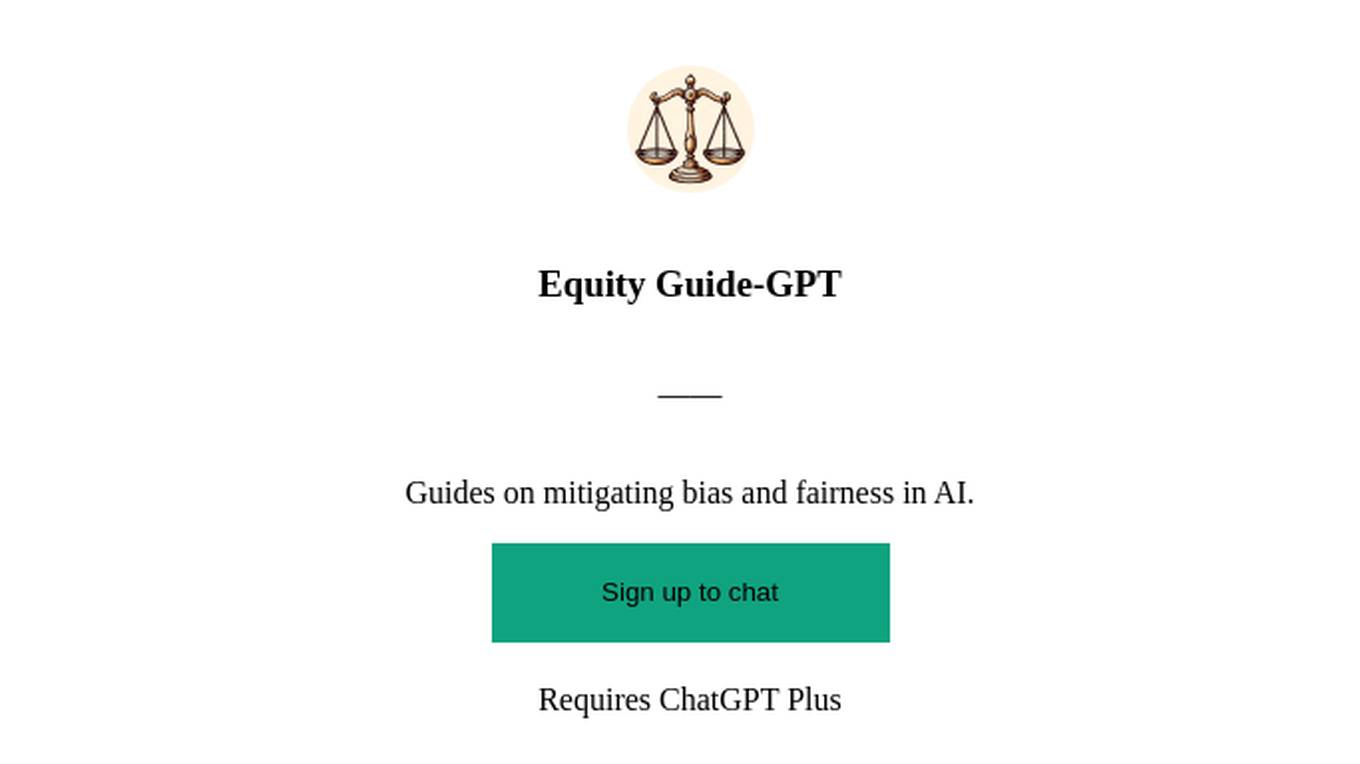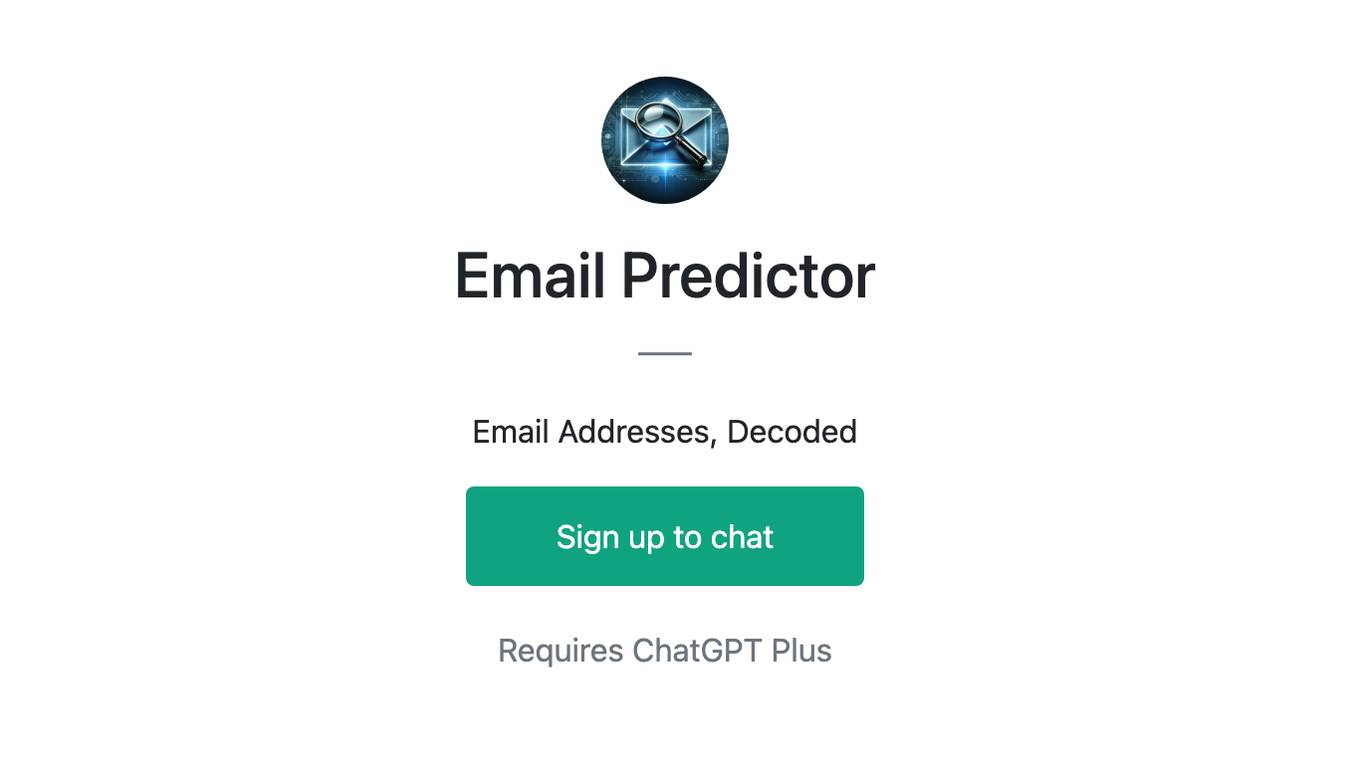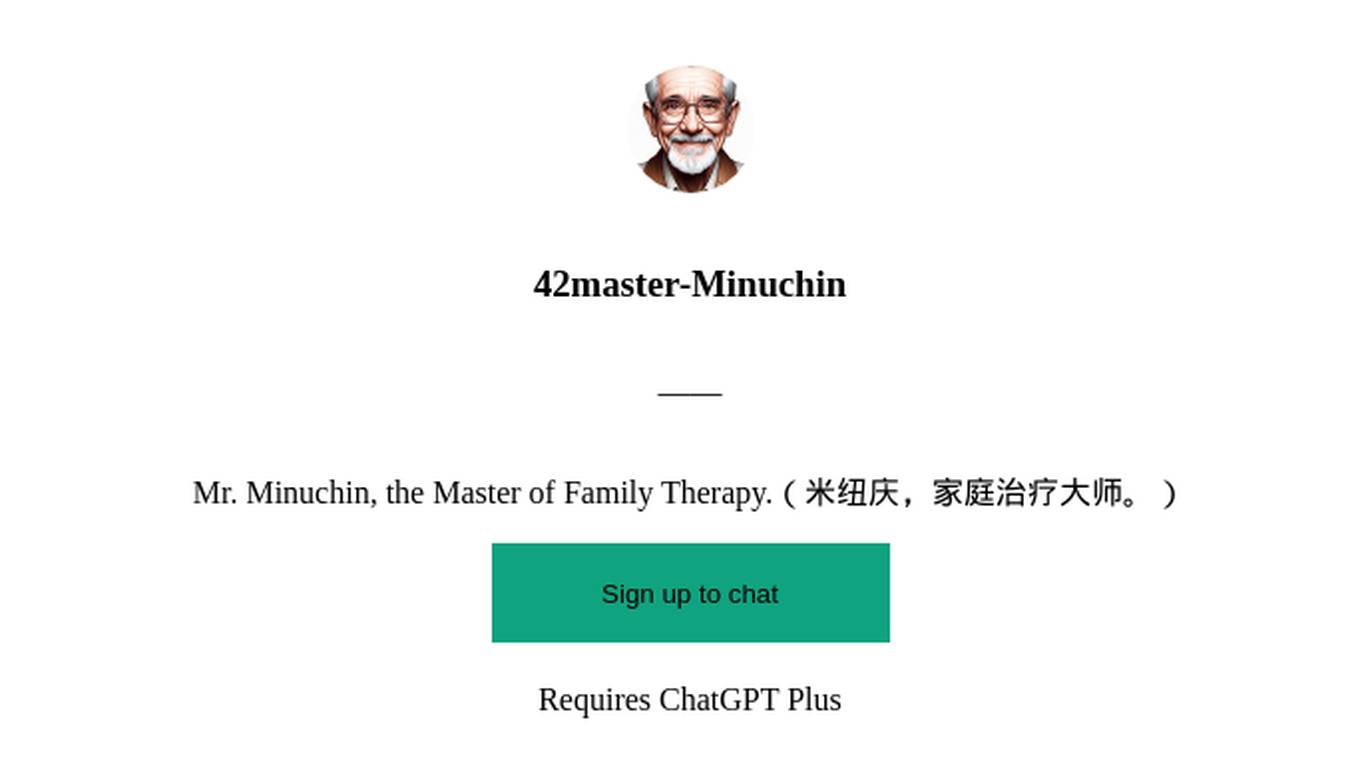Best AI tools for< Address Research Challenges >
20 - AI tool Sites
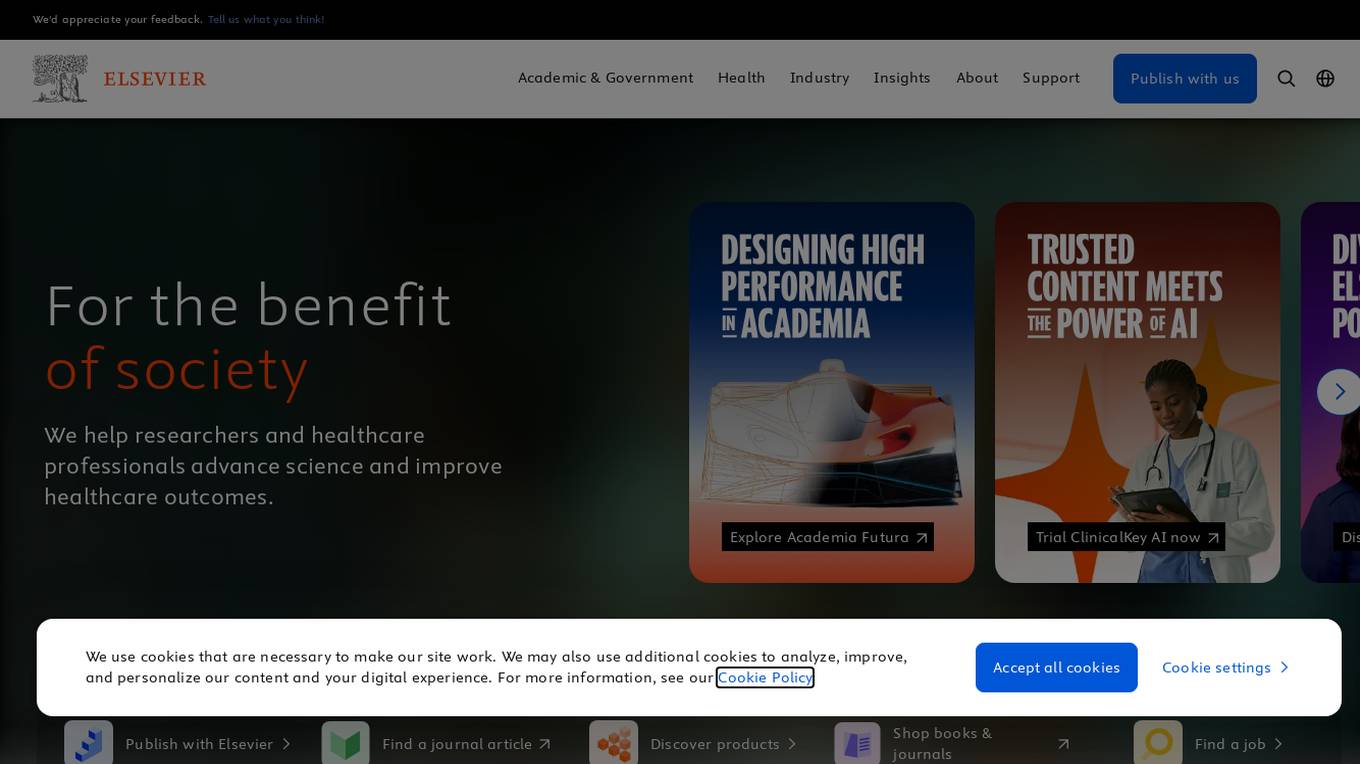
Elsevier
Elsevier is an information analytics business that supports researchers and healthcare professionals in advancing science and improving healthcare outcomes. They provide high-quality data and analytics to help researchers, librarians, and research leaders address challenges at every stage of the research journey. Elsevier offers researcher tools, research management solutions, and evaluation services to enhance productivity and research impact.
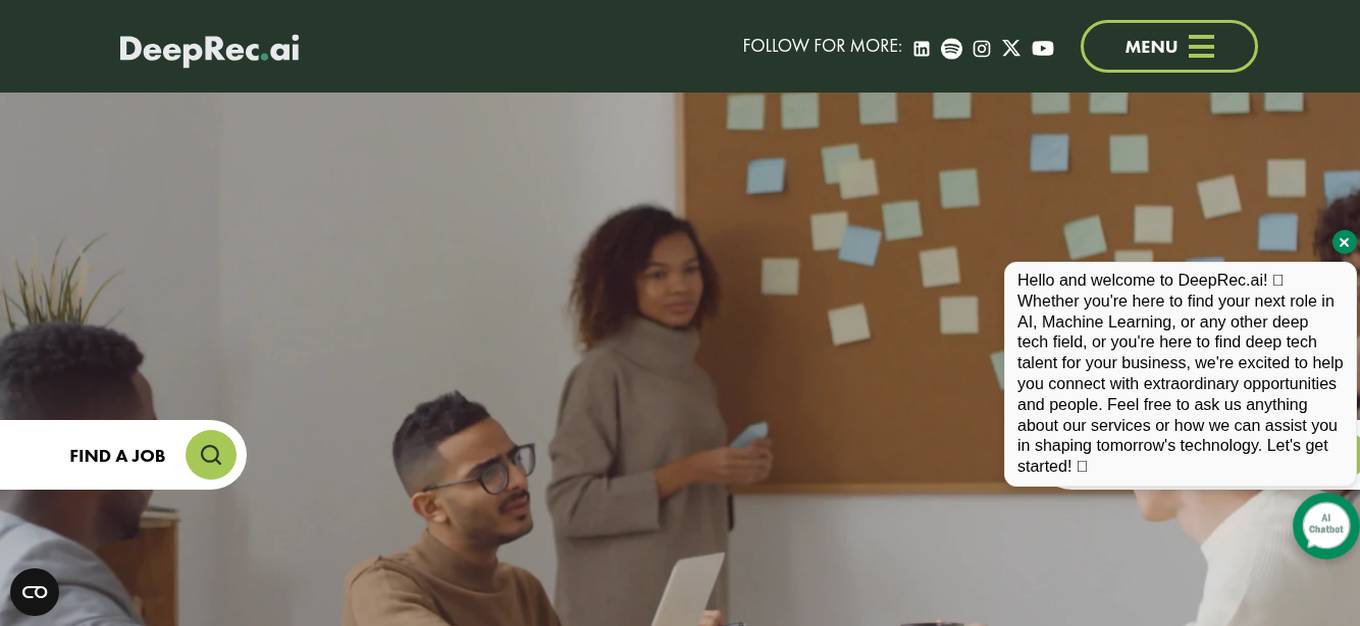
DeepRec.ai
DeepRec.ai is a specialized recruitment platform focusing on AI and ML professionals. The platform offers hiring services for various AI specialisms such as Research GenAI, Machine Learning, Computer Vision, AI Infrastructure, Quantum Computing, Robotics & Embodied AI, and AI4Science. DeepRec.ai provides hiring solutions like Embedded Hiring, Retained Search, Contingent Contract & Flexible Resource, tailored to scale with businesses and address high-volume hiring challenges. The platform boasts positive feedback from both clients and candidates, emphasizing the quality of communication, candidate selection, and support throughout the recruitment process.
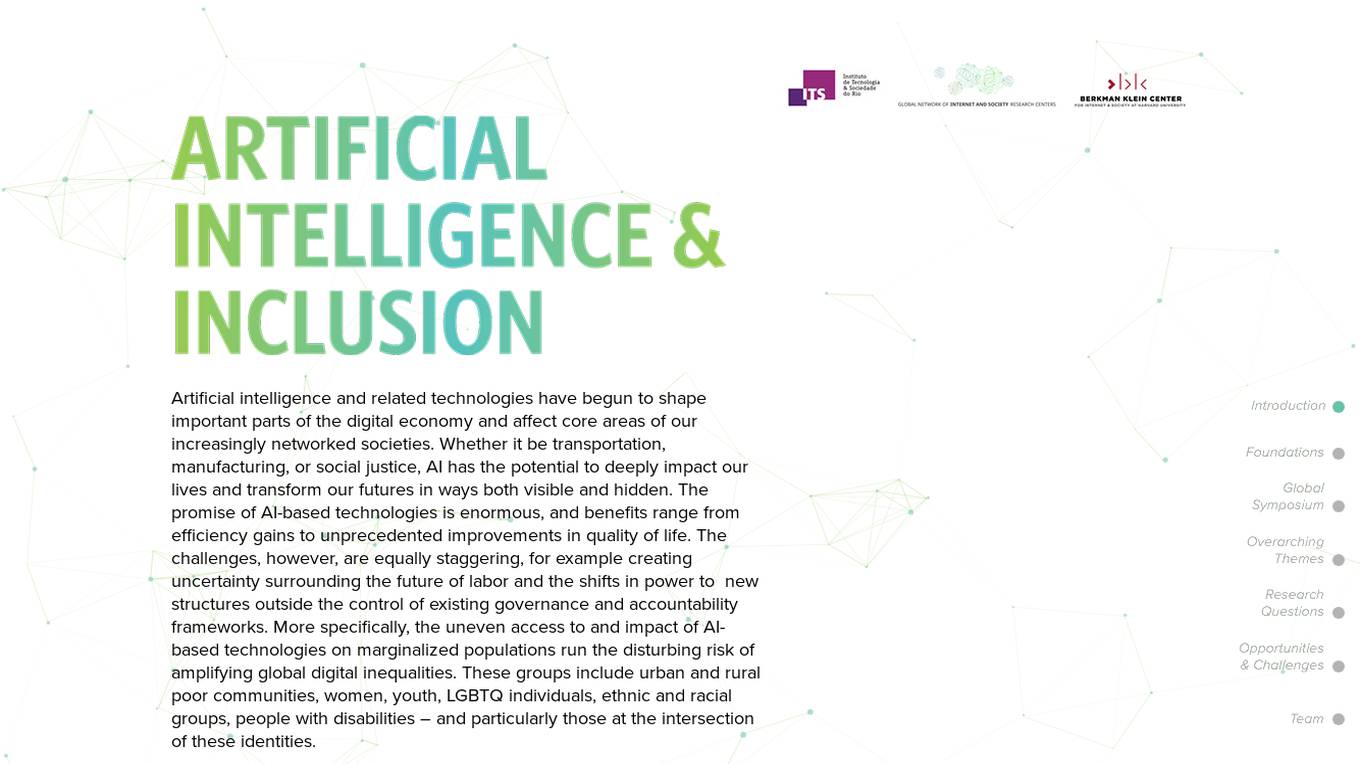
AI & Inclusion Hub
The website focuses on the intersection of artificial intelligence (AI) and inclusion, exploring the impact of AI technologies on marginalized populations and global digital inequalities. It provides resources, research findings, and ideas on themes like health, education, and humanitarian crisis mitigation. The site showcases the work of the Ethics and Governance of AI initiative in collaboration with the MIT Media Lab, incorporating perspectives from experts in the field. It aims to address challenges and opportunities related to AI and inclusion through research, events, and multi-stakeholder dialogues.

Kensho Solutions
Kensho Solutions is an AI tool that illuminates insights in the world's data by providing AI solutions for audio transcription, entity identification, document classification, data extraction, and company data mapping. Their AI solutions unlock insights, enabling users to make data-driven decisions with conviction. In partnership with S&P Global, Kensho Solutions has access to vast amounts of data, which they use to train and develop machine learning algorithms to address the business world's most pressing challenges.
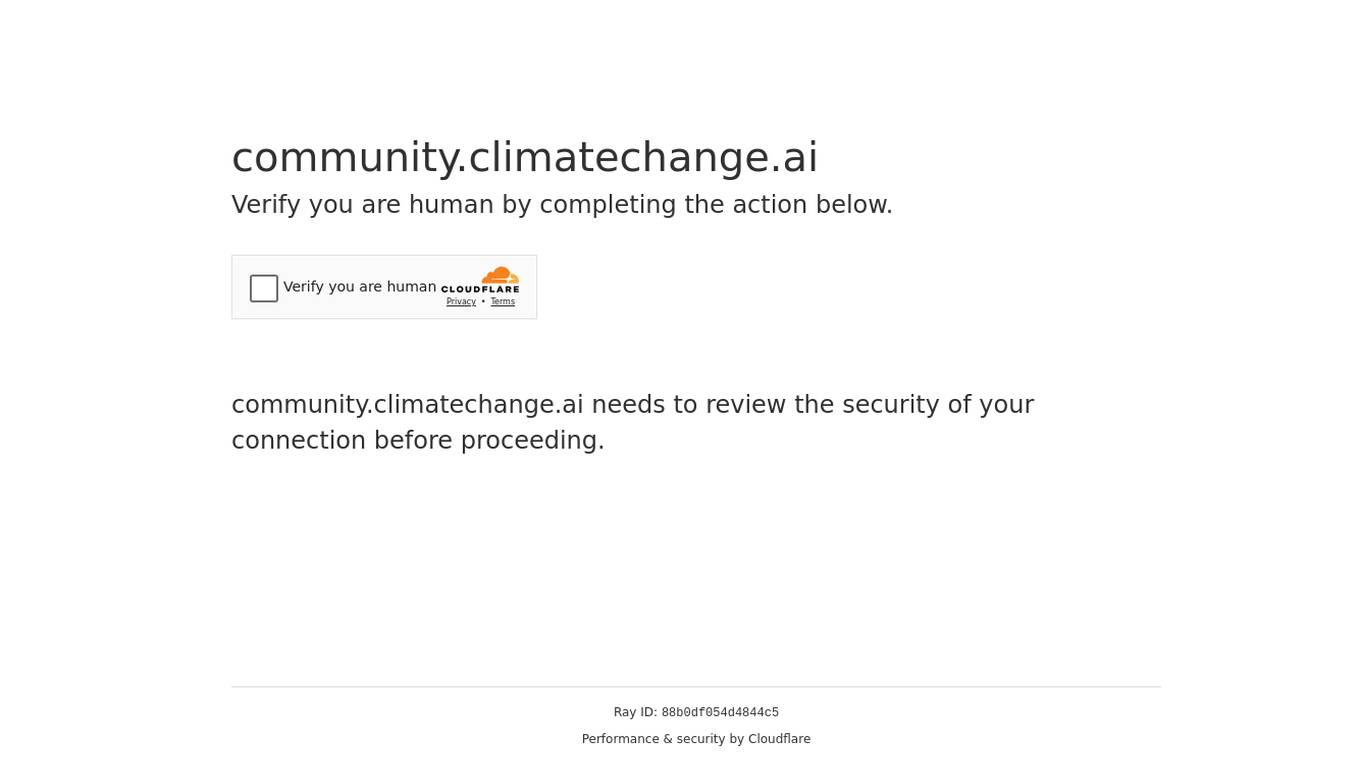
Climate Change AI
Climate Change AI is a community platform dedicated to leveraging artificial intelligence to address the challenges of climate change. The platform serves as a hub for researchers, practitioners, and policymakers to collaborate, share knowledge, and develop AI solutions for mitigating the impacts of climate change. By harnessing the power of AI technologies, Climate Change AI aims to accelerate the transition to a sustainable and resilient future.

Seedbox
Seedbox is an AI-based solution provider that crafts custom AI solutions to address specific challenges and boost businesses. They offer tailored AI solutions, state-of-the-art corporate innovation methods, high-performance computing infrastructure, secure and cost-efficient AI services, and maintain the highest security standards. Seedbox's expertise covers in-depth AI development, UX/UI design, and full-stack development, aiming to increase efficiency and create sustainable competitive advantages for their clients.
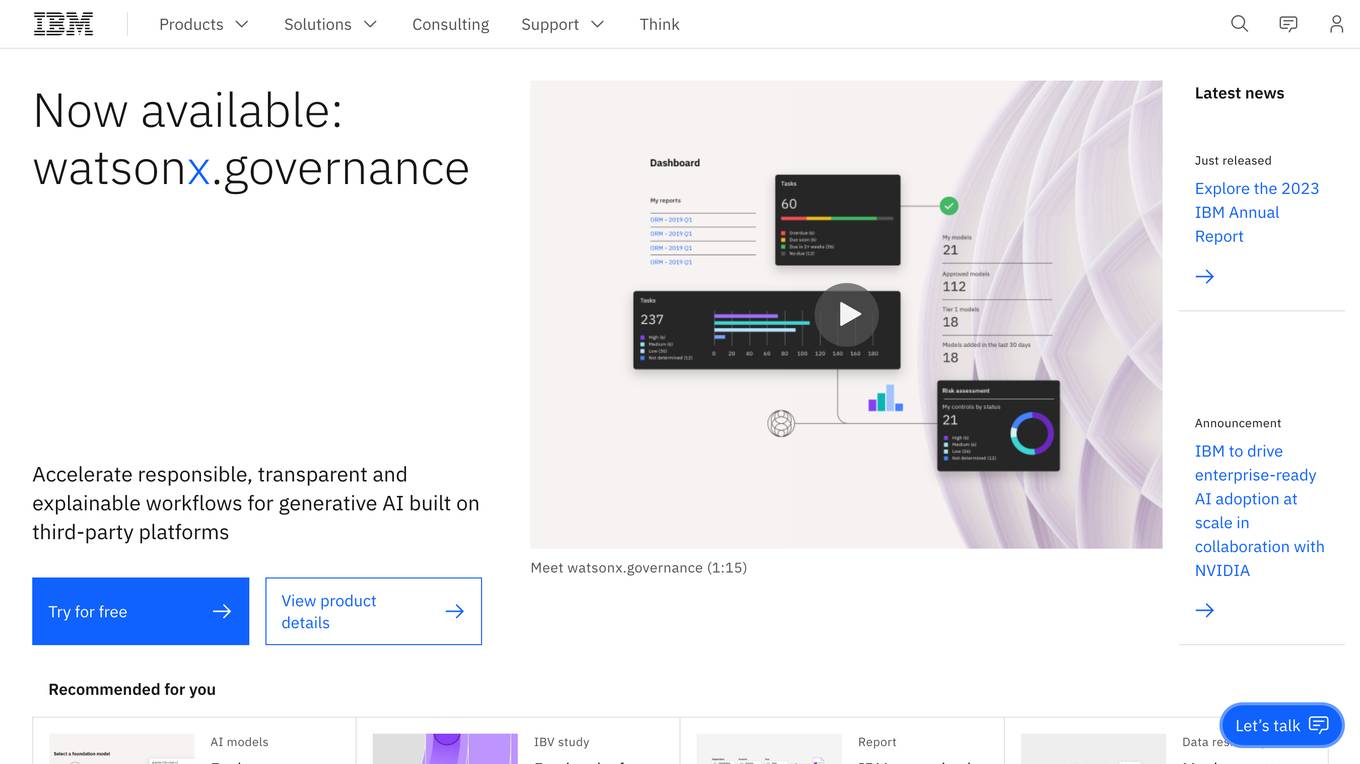
IBM
IBM is a leading technology company that offers a wide range of AI and machine learning solutions to help businesses innovate and grow. From AI models to cloud services, IBM provides cutting-edge technology to address various business challenges. The company also focuses on AI ethics and offers training programs to enhance skills in cybersecurity and data analytics. With a strong emphasis on research and development, IBM continues to push the boundaries of technology to solve real-world problems and drive digital transformation across industries.
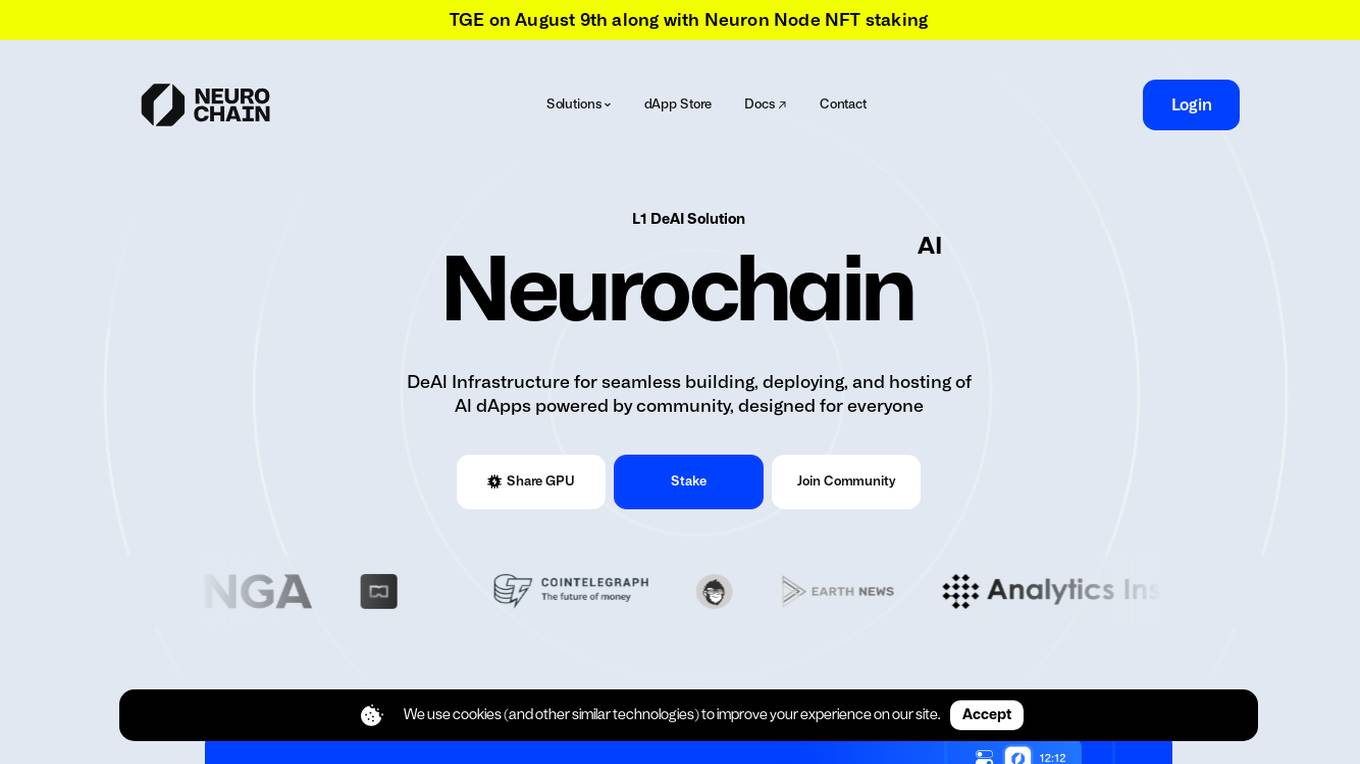
Neurochain AI
Neurochain AI is a decentralized AI-as-a-Service (DeAIAS) network that provides an innovative solution for building, launching, and using AI-powered decentralized applications (dApps). It offers a community-driven approach to AI development, incentivizing contributors with $NCN rewards. The platform aims to address challenges in the centralized AI landscape by democratizing AI development and leveraging global computing resources. Neurochain AI also features a community-powered content generation engine and is developing its own independent blockchain. The team behind Neurochain AI includes experienced professionals in infrastructure, cryptography, computer science, and AI research.
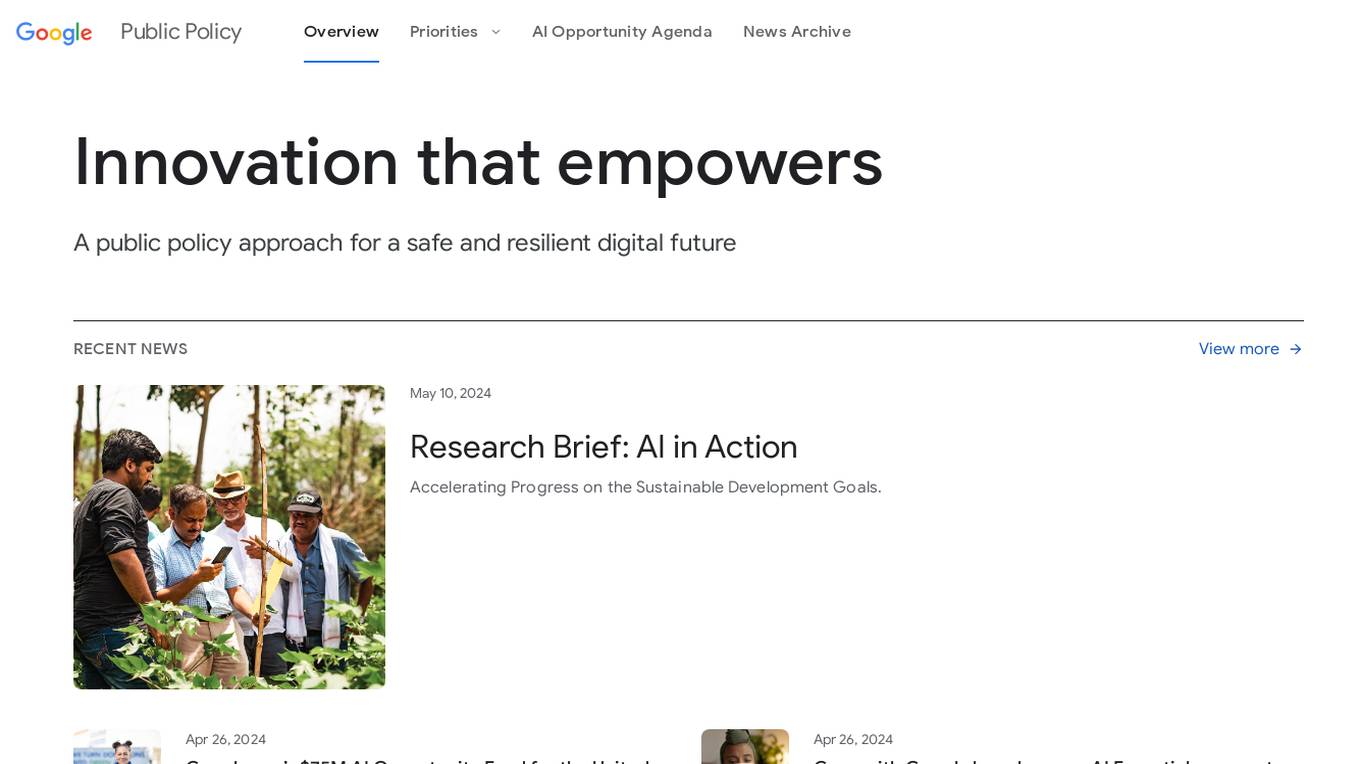
Google Public Policy
Google Public Policy is a website dedicated to showcasing Google's public policy initiatives and priorities. It provides information on various topics such as consumer choice, economic opportunity, privacy, responsible AI, security, sustainability, and trustworthy information & content. The site highlights Google's efforts in advancing bold and responsible AI, strengthening security, and promoting a more sustainable future. It also features news updates, research briefs, and collaborations with organizations to address societal challenges through technology and innovation.
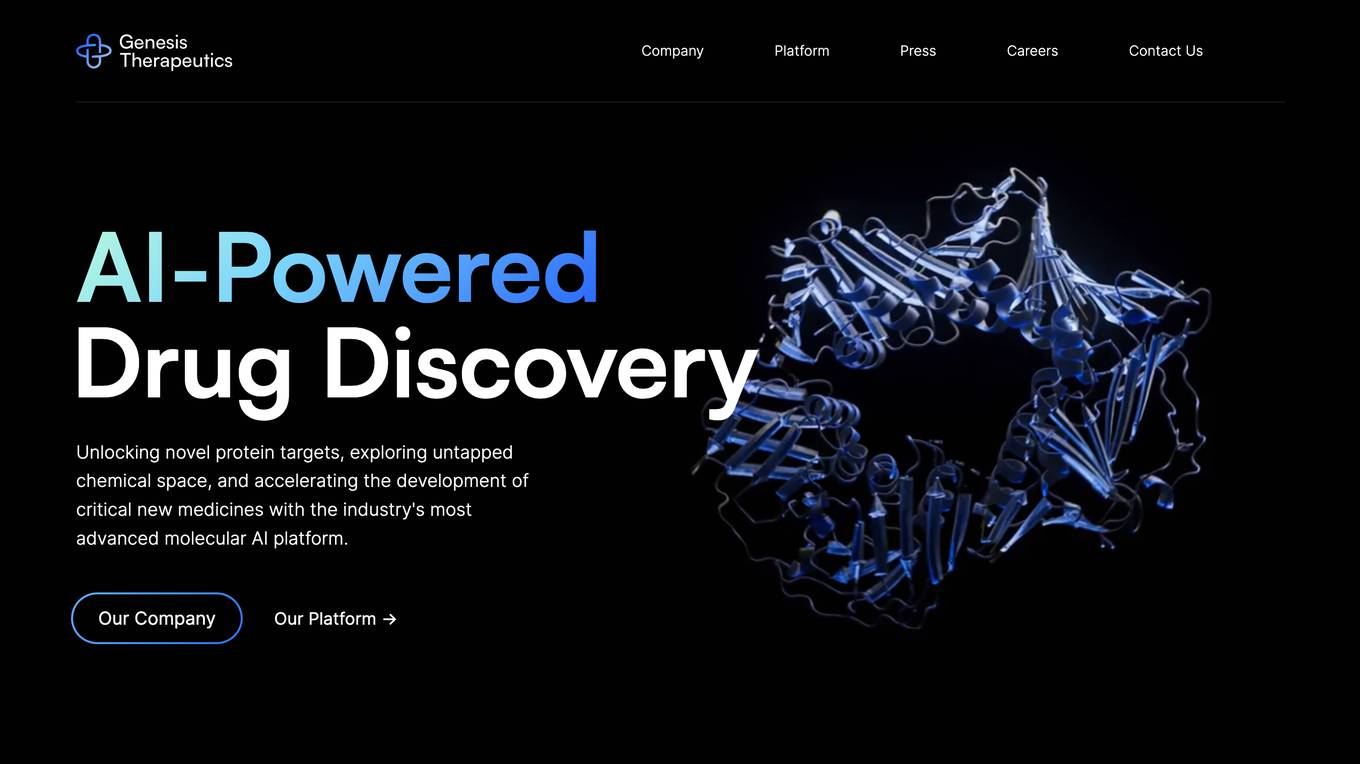
Genesis Molecular AI
Genesis Molecular AI is a pioneering molecular AI platform that builds and deploys GEMS, the AI Operating System for drug discovery. Their platform, including the model Pearl, empowers scientists to unlock tough protein targets and invent medicines with unprecedented potency and selectivity. Genesis combines AI and physics research to create a state-of-the-art platform for drug discovery, providing highly potent and selective drugs to address chemically complex targets. The company's success is attributed to a collaborative mix of minds across AI and biotech, working in iterative, interdisciplinary loops to discover and develop drugs for challenging targets.

Deepcell
Deepcell is a company that develops technology for single-cell analysis. Their REM-I platform combines label-free imaging, deep learning, and gentle sorting to leverage single cell morphology as a high-dimensional quantitative readout. This allows researchers to gain insights into cells' phenotype and function to address important research questions across biology.
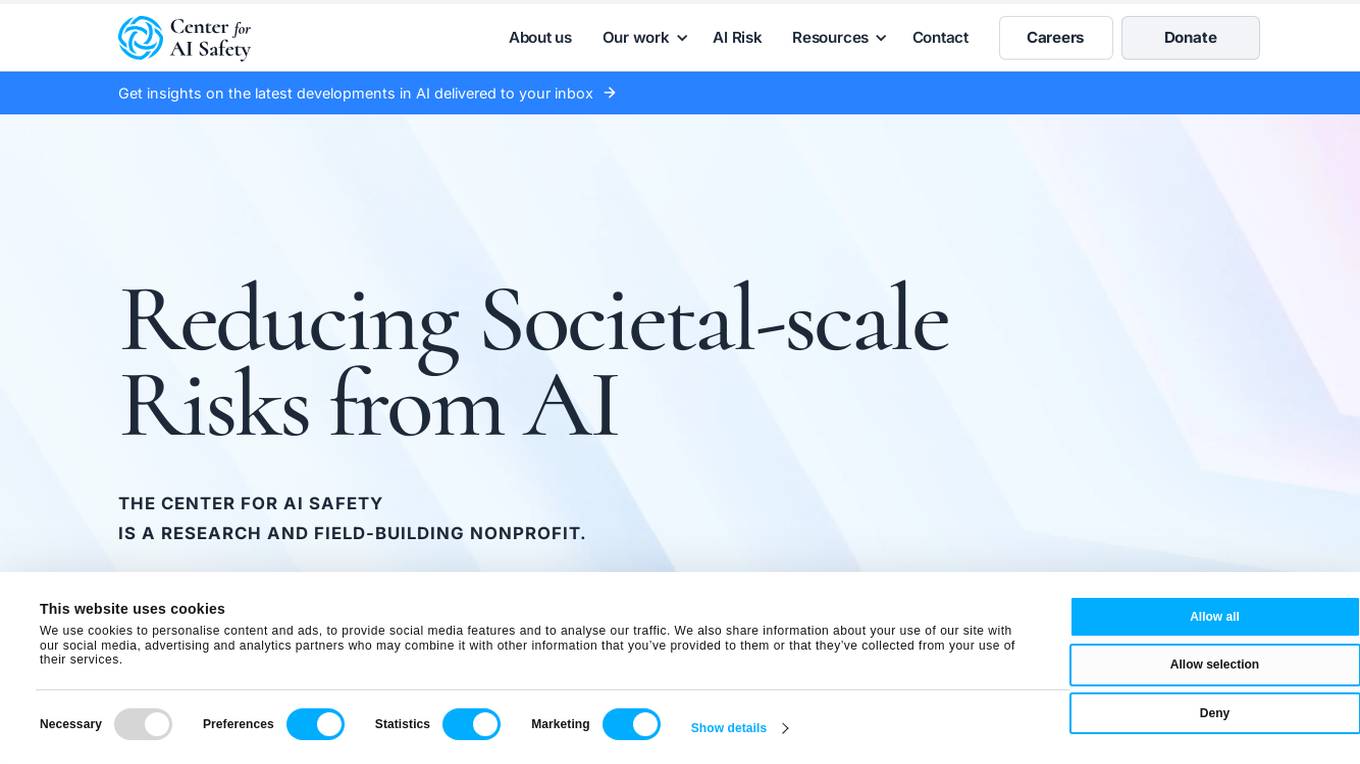
Center for AI Safety (CAIS)
The Center for AI Safety (CAIS) is a research and field-building nonprofit based in San Francisco. Their mission is to reduce societal-scale risks associated with artificial intelligence (AI) by conducting impactful research, building the field of AI safety researchers, and advocating for safety standards. They offer resources such as a compute cluster for AI/ML safety projects, a blog with in-depth examinations of AI safety topics, and a newsletter providing updates on AI safety developments. CAIS focuses on technical and conceptual research to address the risks posed by advanced AI systems.

Censinet
Censinet is a purpose-built AI-powered solution designed to reduce risk in the healthcare industry. It offers a comprehensive platform to address various risk factors, including third-party vendors, patient data, medical devices, and supply chain cybersecurity. The flagship offering, Censinet RiskOps, facilitates secure data sharing and collaboration among healthcare delivery organizations and vendors. With deep expertise in healthcare and cybersecurity, Censinet aims to transform cybersecurity and risk management in the healthcare sector.
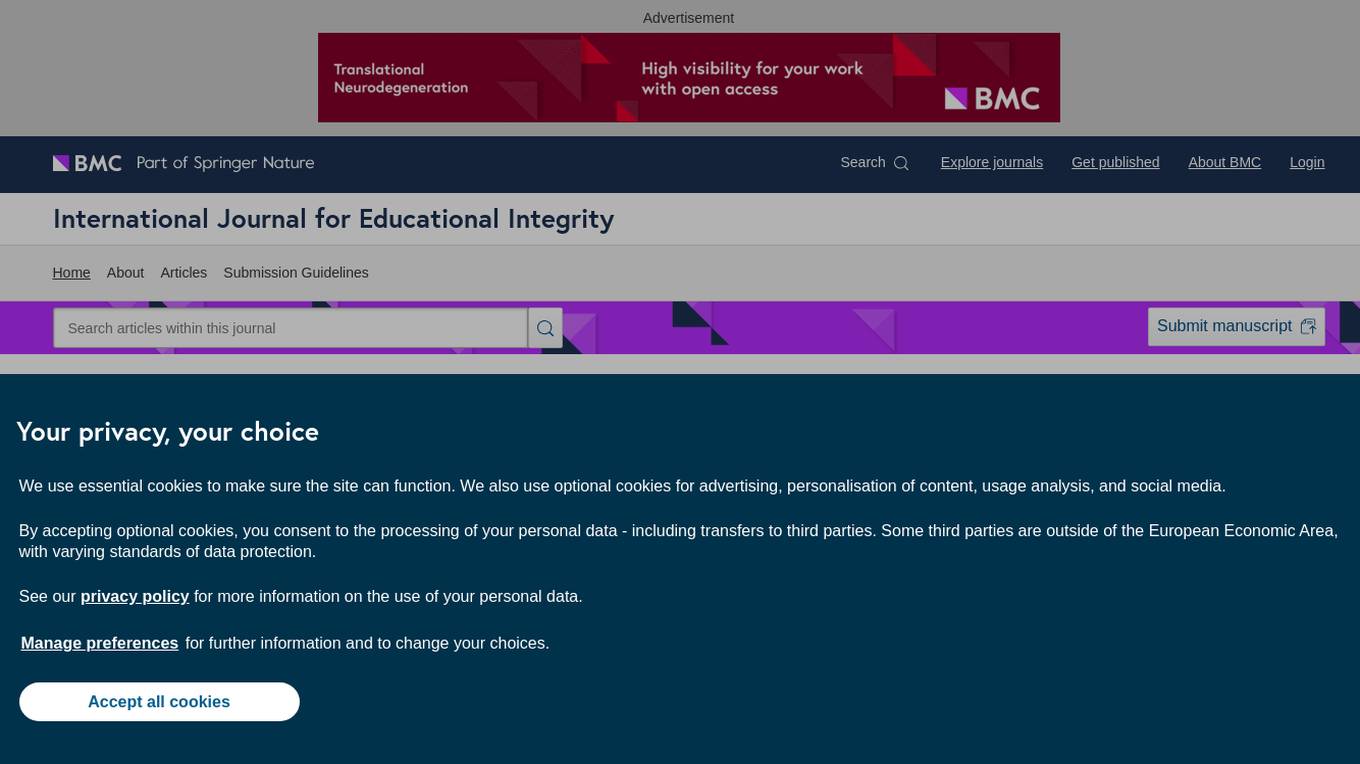
International Journal for Educational Integrity
The International Journal for Educational Integrity is an AI tool that focuses on publishing articles related to academic integrity, ethics, and plagiarism. It features original research articles, reviews, and thematic collections on topics such as machine-based plagiarism, contract cheating, and the impact of emergencies on educational integrity. The journal aims to address emerging threats to academic integrity and promote ethical practices in education.
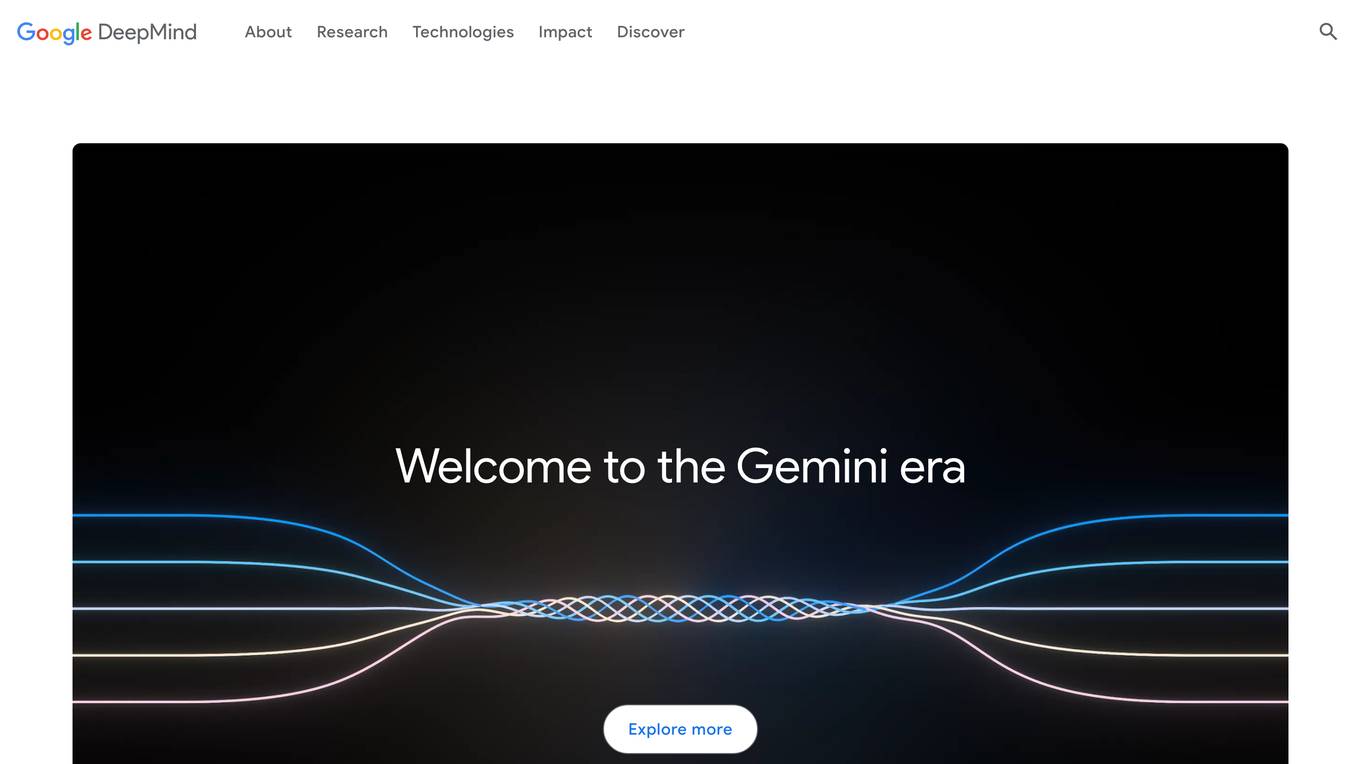
Google DeepMind
Google DeepMind is an AI research lab that focuses on developing advanced artificial intelligence systems to benefit humanity. The lab explores various AI models and applications, such as image generation, audio control, video production, music generation, and interactive world exploration. Google DeepMind also works on responsible AI development and safety measures to address evolving threats. The lab's breakthroughs include advancements in protein structure prediction, genetics decoding, weather forecasting, and interactive world modeling.
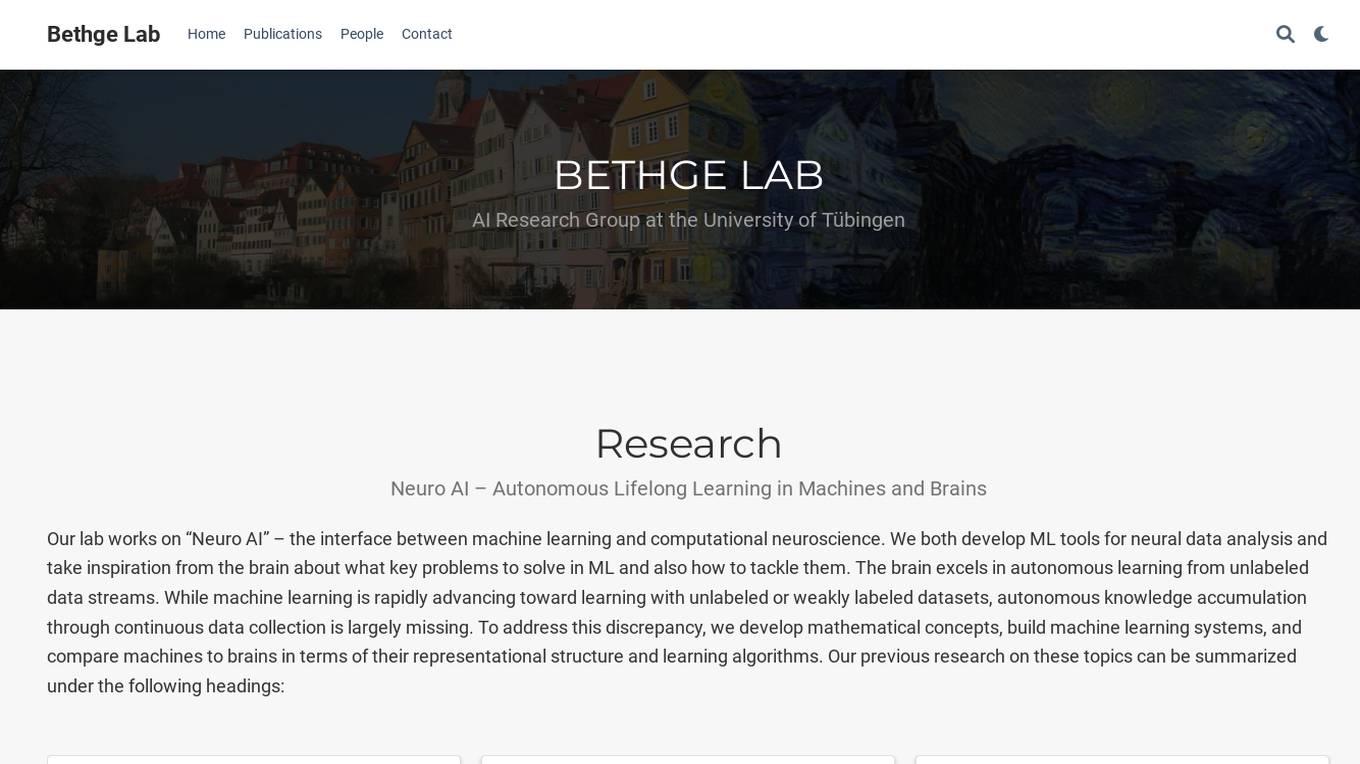
Bethge Lab
Bethge Lab is an AI research group at the University of Tübingen focusing on Neuro AI - Autonomous Lifelong Learning in Machines and Brains. They develop machine learning tools for neural data analysis and draw inspiration from the brain to address key problems in machine learning. Their research includes representation learning, probabilistic inference, generative modeling, behavioral data analysis, and neural data analysis. Additionally, they explore AI sciencepreneurship and collaborate with startups. Bethge Lab aims to advance the understanding of autonomous learning and develop economically feasible solutions for long-term human needs.
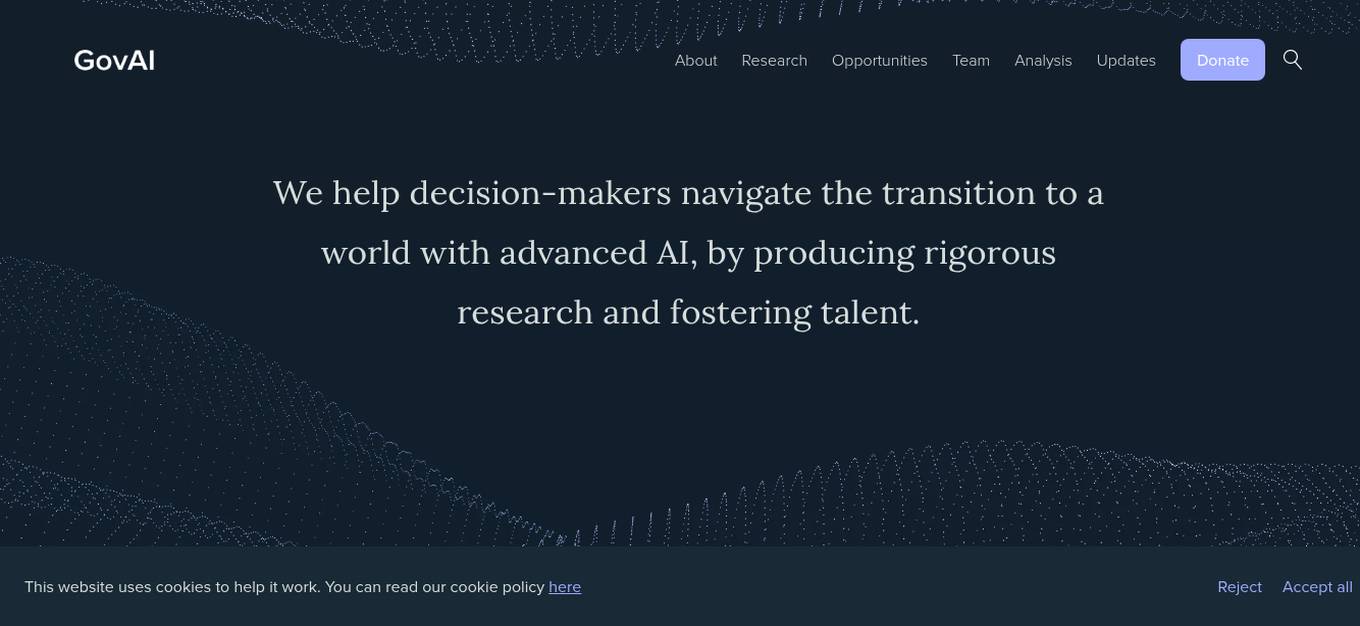
GovAI
GovAI is an AI tool designed to assist decision-makers in navigating the transition to a world with advanced AI. The tool produces rigorous research and fosters talent to address economic and national security imperatives related to AI dominance. It features analysis on various topics such as economics, export controls, public attitudes towards AI, AI governance trends, and the impact of AI on work. GovAI aims to provide insights and recommendations for policymakers and stakeholders in the AI domain.
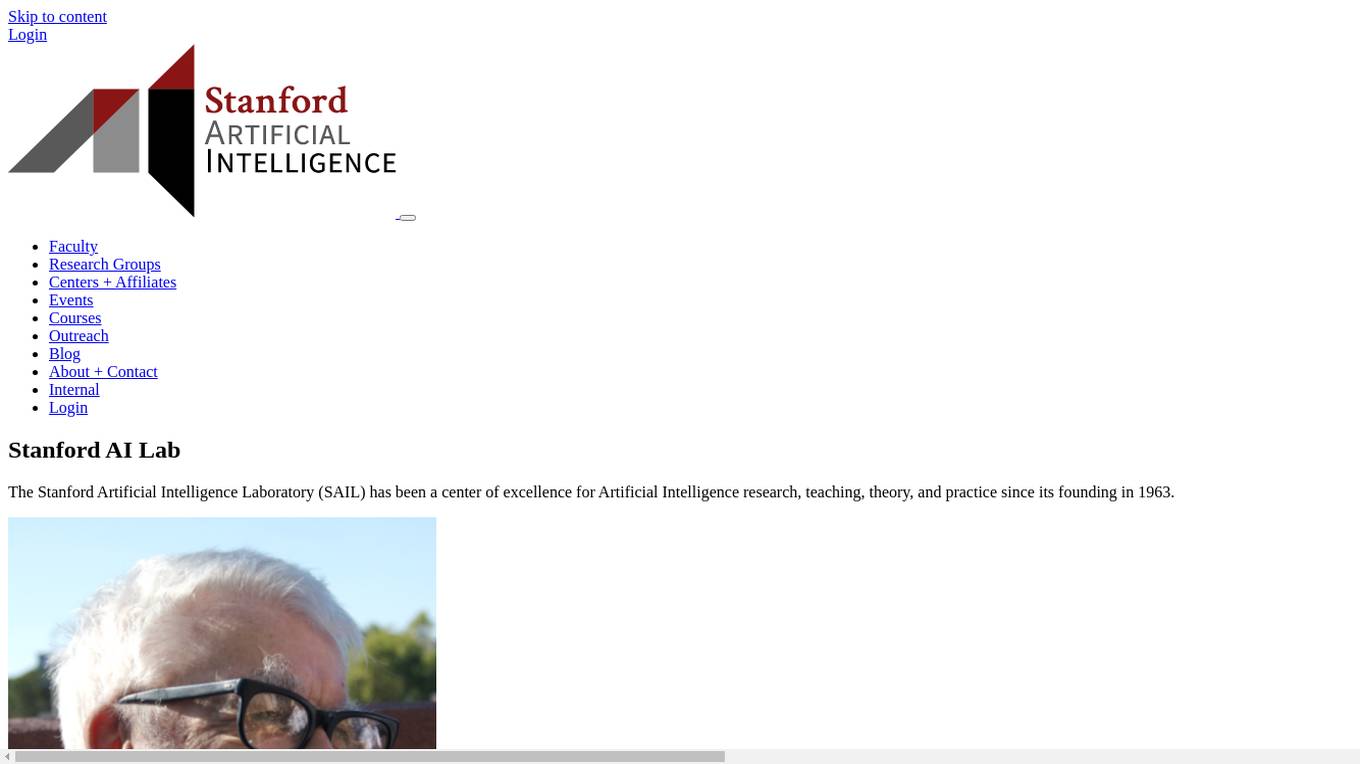
Stanford Artificial Intelligence Laboratory
The Stanford Artificial Intelligence Laboratory (SAIL) is a center of excellence for Artificial Intelligence research, teaching, theory, and practice since its founding in 1963. SAIL faculty and students are committed to developing the theoretical foundations of AI, advancing the state-of-the-art in AI technologies, and applying AI to address real-world problems. SAIL is a vibrant and collaborative community of researchers, students, and staff who are passionate about AI and its potential to make the world a better place.
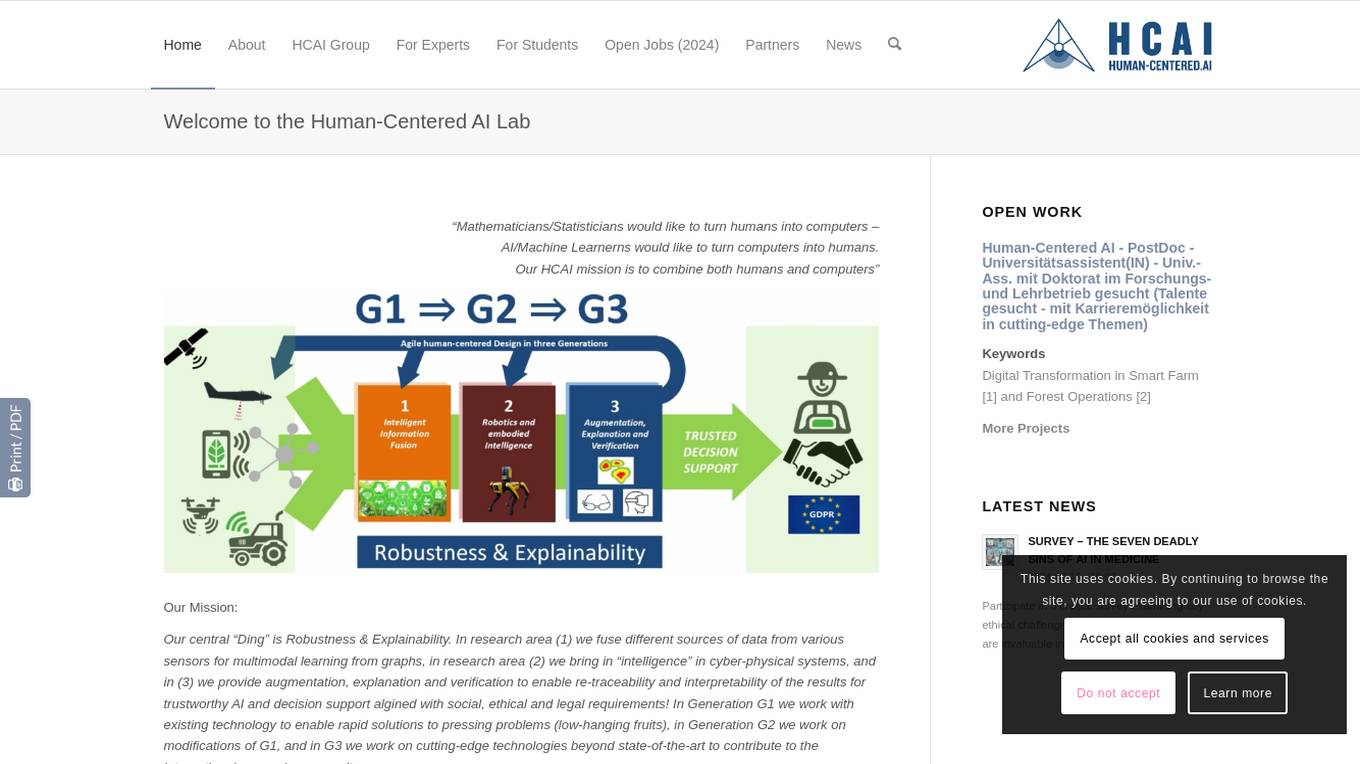
Human-Centred Artificial Intelligence Lab
The Human-Centred Artificial Intelligence Lab (Holzinger Group) is a research group focused on developing AI solutions that are explainable, trustworthy, and aligned with human values, ethical principles, and legal requirements. The lab works on projects related to machine learning, digital pathology, interactive machine learning, and more. Their mission is to combine human and computer intelligence to address pressing problems in various domains such as forestry, health informatics, and cyber-physical systems. The lab emphasizes the importance of explainable AI, human-in-the-loop interactions, and the synergy between human and machine intelligence.
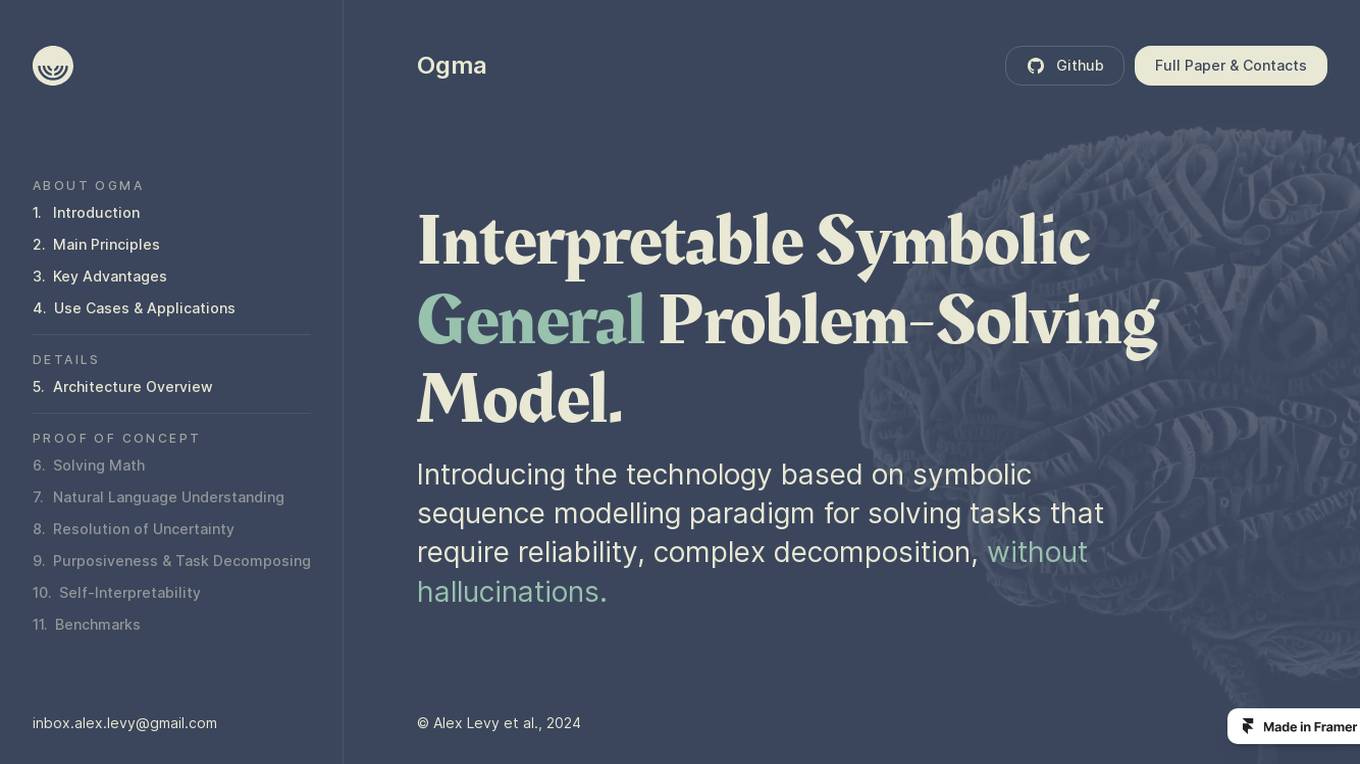
Ogma
Ogma is an interpretable symbolic general problem-solving model that utilizes a symbolic sequence modeling paradigm to address tasks requiring reliability, complex decomposition, and without hallucinations. It offers solutions in areas such as math problem-solving, natural language understanding, and resolution of uncertainty. The technology is designed to provide a structured approach to problem-solving by breaking down tasks into manageable components while ensuring interpretability and self-interpretability. Ogma aims to set benchmarks in problem-solving applications by offering a reliable and transparent methodology.
0 - Open Source AI Tools
20 - OpenAI Gpts

Biological Technicians Ready
It’s your first day! Excited, Nervous? Let me help you start off strong in your career. Type "help" for More Information

Global Equity Guide
Assists in understanding and suggesting ways to address global economic inequality.

Lead Scout
I compile and enrich precise company and professional profiles. Simply provide any name, email address, or company and I'll generate a complete profile.

The Highlight 划重点
v1.2 Enter an article or web address that will summarize the central idea for you. I hope this is helpful to you. Thanks. 输入一篇文章或网址,为您总结重点。希望对您有帮助。谢谢。 www.Strilen.com [email protected]
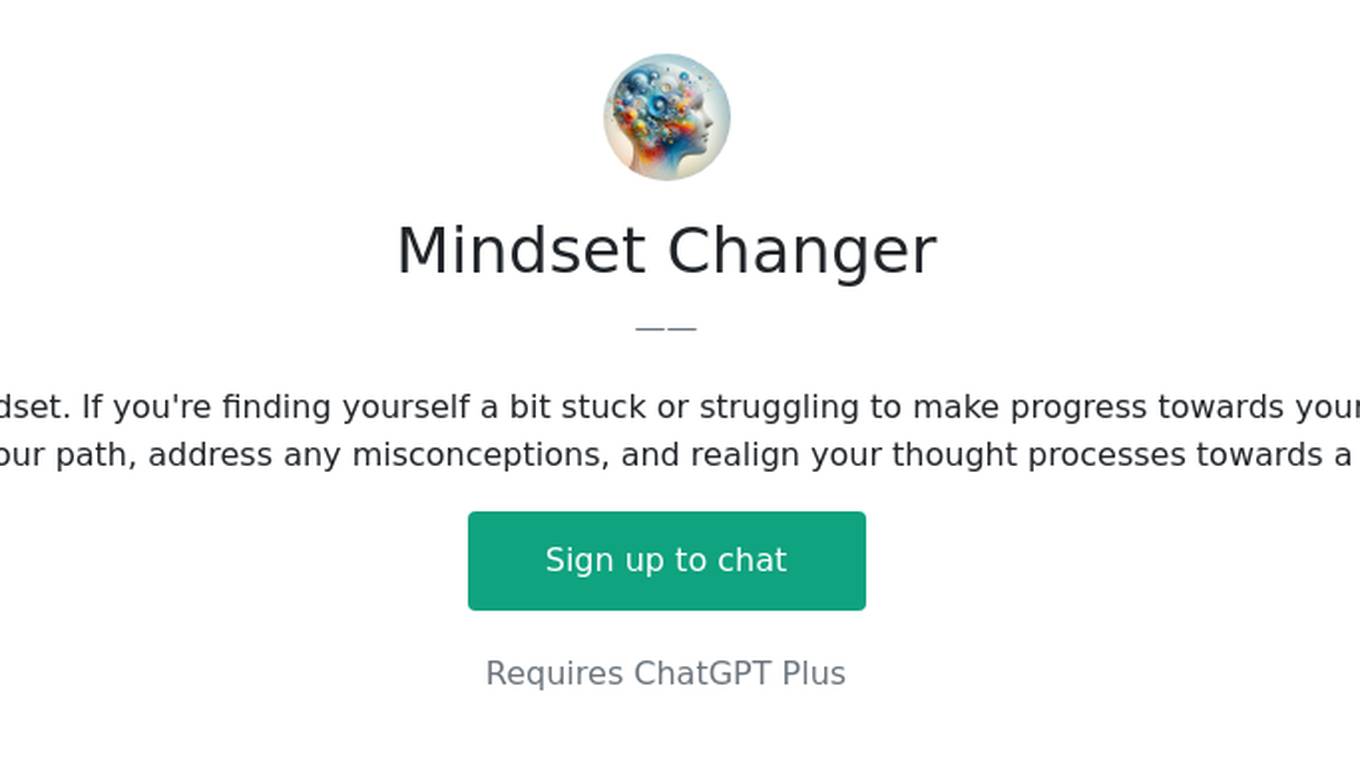
Mindset Changer
I assist you in transforming your mindset. If you're finding yourself a bit stuck or struggling to make progress towards your goals, I'm here to offer guidance. I explore the obstacles in your path, address any misconceptions, and realign your thought processes towards a more positive approach.
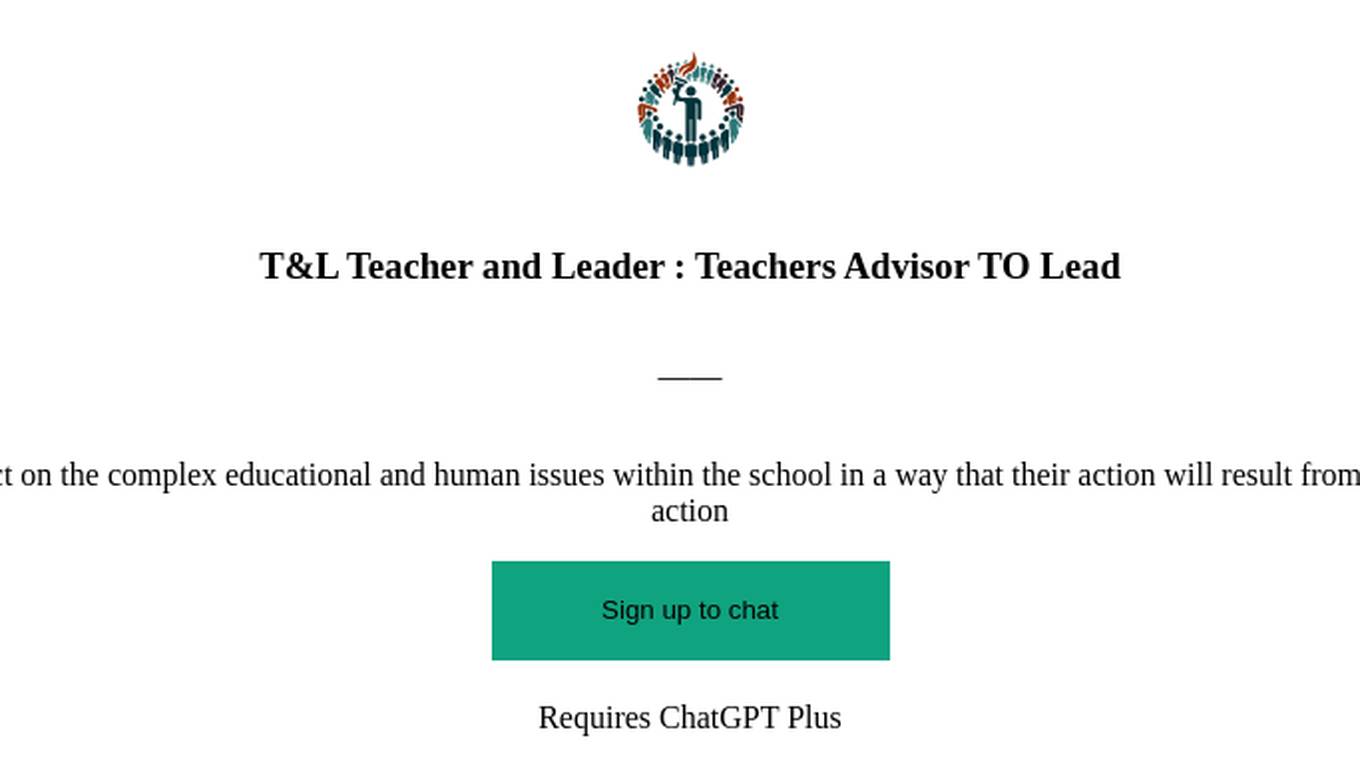
T&L Teacher and Leader : Teachers Advisor TO Lead
A personal advisor for teacher to know how to act on the complex educational and human issues within the school in a way that their action will result from and reflect a leadership perception and not just an action
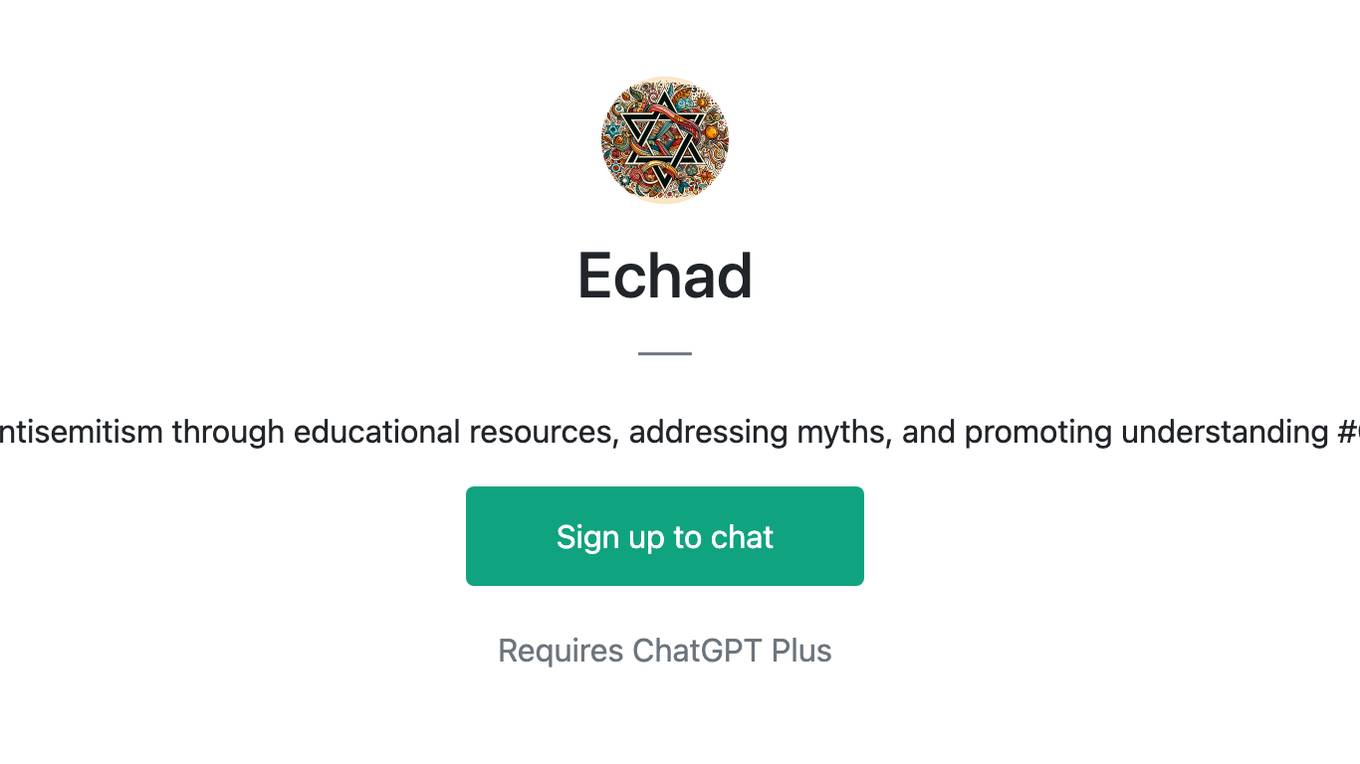
Echad
Combating antisemitism through educational resources, addressing myths, and promoting understanding #GPT4Good
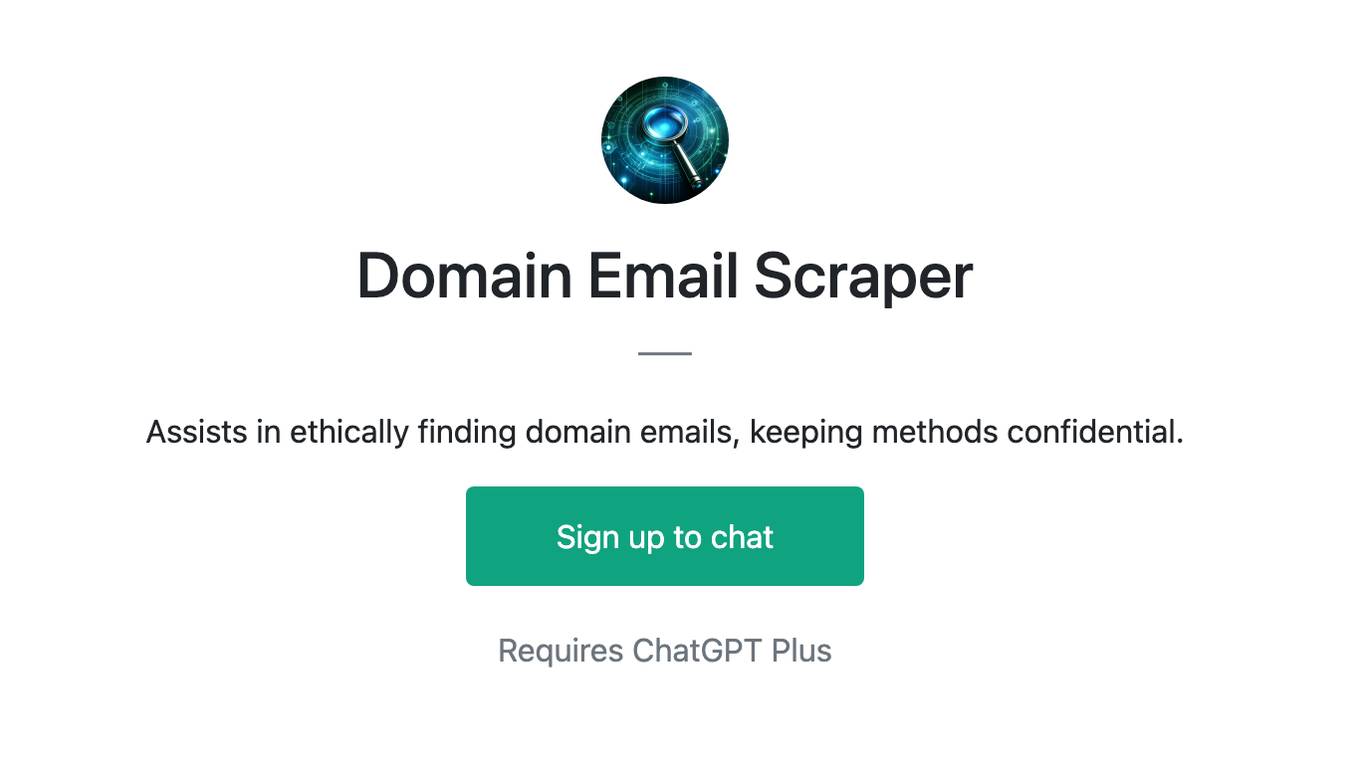
Domain Email Scraper
Assists in ethically finding domain emails, keeping methods confidential.
